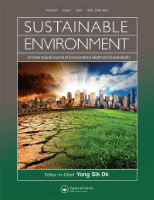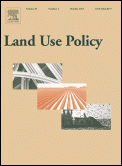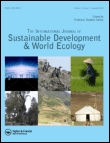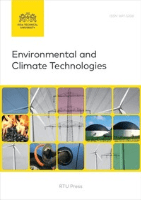
Sustainable Environment
Scope & Guideline
Exploring the frontiers of sustainability research.
Introduction
Aims and Scopes
- Environmental Management and Policy:
Research on strategies and policies for effective management of natural resources, waste management, and sustainable practices across different sectors. - Climate Change and Resilience:
Studies that investigate the impacts of climate change on ecosystems and communities, exploring adaptive strategies and resilience-building measures. - Sustainable Agriculture and Food Security:
Exploration of agricultural practices that enhance sustainability, food security, and the impacts of agricultural policies on environmental health. - Urban Sustainability and Development:
Focus on urban planning, green infrastructure, and the role of cities in promoting sustainable development and addressing urban environmental challenges. - Ecological Conservation and Biodiversity:
Research that emphasizes the importance of biodiversity conservation, ecosystem services, and the effects of human activities on wildlife and habitats. - Socio-Economic Dimensions of Sustainability:
Investigating the socio-economic factors influencing sustainable practices, including community engagement, public perception, and the economic implications of environmental policies. - Innovative Environmental Technologies:
Advancements in technologies aimed at solving environmental issues, such as waste recycling, renewable energy, and pollution control.
Trending and Emerging
- Integration of Technology in Environmental Solutions:
The use of advanced technologies such as remote sensing, big data analytics, and geospatial tools in environmental monitoring and management has gained momentum, indicating a trend towards data-driven sustainability. - Community-based Conservation and Engagement:
Research focusing on local community involvement in conservation efforts is increasing, highlighting the importance of participatory approaches in achieving sustainable outcomes. - Climate Change Adaptation Strategies:
A growing body of work is dedicated to developing and assessing adaptation strategies for communities vulnerable to climate change, emphasizing resilience and sustainable livelihoods. - Circular Economy and Resource Efficiency:
There is an emerging trend towards exploring circular economy principles, including waste reduction, recycling, and sustainable material use, which are increasingly prioritized in environmental research. - Health and Environmental Interactions:
Studies investigating the interconnections between environmental health and public health, particularly in the context of pollution and climate change impacts, are on the rise. - Sustainable Practices in Agriculture:
Innovations in sustainable agricultural practices, including agroecology and organic farming, are gaining attention as critical components in enhancing food security and environmental health. - Socio-economic Impacts of Sustainability Initiatives:
Research exploring the socio-economic impacts of sustainability initiatives, including equity and justice dimensions, is emerging as a vital area of focus.
Declining or Waning
- Traditional Waste Management Practices:
Research on conventional waste management has decreased, possibly due to a growing emphasis on innovative and circular economy approaches that prioritize waste reduction and resource recovery. - Static Environmental Assessments:
Studies that merely assess environmental impacts without proposing adaptive or innovative solutions have waned, reflecting a preference for dynamic, solution-oriented research. - Regional Focus on Developed Countries:
There has been a decline in studies focusing exclusively on environmental issues in developed countries, as the journal increasingly emphasizes sustainability challenges in developing regions. - Single-Dimensional Environmental Impact Studies:
Research that only examines one aspect of environmental impact, such as pollution levels without considering socio-economic factors, is becoming less common in favor of more integrated approaches. - Historical Environmental Data Analysis:
There is a noticeable decrease in publications solely focused on historical environmental data analysis, as contemporary studies lean more towards predictive modeling and real-time data assessments.
Similar Journals

LAND USE POLICY
Empowering Policy Makers with Groundbreaking ResearchLAND USE POLICY, published by ELSEVIER SCI LTD, is a premier academic journal dedicated to advancing the study of land use issues and policies, with a particular focus on sustainable management and conservation practices. Since its inception in 1984, this journal has established itself as an influential platform in the fields of Forestry, Geography, Planning and Development, and Environmental Science, consistently achieving a Q1 category ranking across various disciplines. With an impressive impact factor and recognition as a top-tier source (e.g., ranking #18/821 in Geography and Planning), it serves as a critical resource for researchers, practitioners, and policy-makers looking to address complex land use challenges. Although it does not offer open access, the journal's articles are widely accessible through institutional subscriptions, enhancing its reach. Researchers and students can find valuable insights into innovative policies and methodologies that promote sustainable land management, making LAND USE POLICY essential reading for anyone engaged in environmental studies and policy development.

INTERNATIONAL JOURNAL OF SUSTAINABLE DEVELOPMENT AND WORLD ECOLOGY
Advancing global insights for sustainable futures.The INTERNATIONAL JOURNAL OF SUSTAINABLE DEVELOPMENT AND WORLD ECOLOGY, published by TAYLOR & FRANCIS INC, stands as a pivotal resource for scholars and practitioners focused on sustainable development and environmental ethics. With an ISSN of 1350-4509 and an E-ISSN of 1745-2627, this journal has made significant strides in the academic landscape since its inception in 1994, aiming to address the complex interrelations between ecological sustainability and development policies on a global scale. Renowned for its rigorous peer-review process, it has achieved a prestigious Q1 classification in both Geography, Planning and Development and Management, Monitoring, Policy and Law, highlighting its influence and relevance among the top tier of scholarly publications. As evidenced by its impressive rankings in Scopus—32nd in Geography and 34th in Environmental Science—this journal plays a critical role in shaping contemporary discourses on sustainable practices. Although it does not currently offer Open Access options, the journal is dedicated to providing a platform for innovative research that not only informs policy-making but also fosters a deeper understanding of global environmental challenges. Whether you are a researcher, policymaker, or student, engaging with the latest findings published in this journal will enhance your insight into sustainable development paradigms.

Environments is a distinguished international journal published by MDPI, focusing on the interdisciplinary realm of ecology, environmental sciences, and sustainability. Established in 2014, this Open Access journal allows unrestricted access to its high-quality research articles, making it an essential resource for researchers, professionals, and students alike. With its impact factor and Scopus ranks reflecting its academic significance—including a Q1 ranking in Ecology, Evolution, Behavior and Systematics—Environments serves as a critical platform for the dissemination of innovative research and practical applications in addressing pressing environmental challenges. The journal's commitment to promoting sustainability and renewable energy initiatives aligns with global efforts to foster a better understanding of our ecological systems and enhances its relevance in today’s rapidly evolving environmental landscape. The journal is based in Switzerland and encompasses a broad scope dedicated to advancing scholarly dialogue in environments related to ecological and environmental science.

Euro-Mediterranean Journal for Environmental Integration
Empowering Research for Lasting Environmental ImpactThe Euro-Mediterranean Journal for Environmental Integration, published by SPRINGER HEIDELBERG, serves as a pivotal platform for interdisciplinary research in the realm of environmental science, particularly focused on the unique ecological and socio-economic context of the Euro-Mediterranean region. With its ISSN 2365-6433 and E-ISSN 2365-7448, this journal aims to foster a collaborative approach to environmental challenges, integrating insights from various fields such as ecology, geography, and sustainable development. Since its inception in 2016, it has made significant strides, achieving a Q3 ranking in Environmental Science and maintaining a notable position within the Scopus rankings, sitting at #102 out of 233 in the general environmental science category, which reflects its growing influence in academic discourse. The journal is committed to open dialogue among researchers, professionals, and students aimed at advancing knowledge and promoting innovative solutions to pressing environmental issues. Access to its comprehensive articles and findings will be key to contributing to a more sustainable future.

Regional Sustainability
Bridging theory and practice in regional sustainability.Regional Sustainability is a premier open access journal published by KEAI PUBLISHING LTD, devoted to the interdisciplinary exploration of sustainable practices within urban and regional contexts. Since its inception in 2020, this journal has quickly established itself as a leading platform for innovative research, currently holding a strong position in category quartiles, including Q1 rankings in Development and Geography, Planning and Development in 2023. With its broad scope encompassing essential themes in Renewable Energy and Urban Studies, Regional Sustainability provides valuable insights and advances knowledge critical for sustainable development, drawing contributions from scholars and practitioners worldwide. The journal’s impressive Scopus rankings underscore its significance with a percentile rank of 87th in both Urban Studies and Development, making it essential reading for researchers and policymakers alike. The journal is headquartered in Beijing, China, and is committed to disseminating high-quality research that addresses contemporary challenges in sustainability.

Environmental and Climate Technologies
Exploring Frontiers in Environmental Science and Renewable Energy.Environmental and Climate Technologies is a premier open-access journal dedicated to advancing knowledge in the fields of environmental science and renewable energy. Published by SCIENDO since 2009, this journal plays a crucial role in disseminating innovative research and interdisciplinary studies that address the pressing challenges posed by climate change and sustainable development. With its current positioning in the Q2 quartile for Environmental Science (miscellaneous) and Q3 for Renewable Energy, Sustainability and the Environment, it is recognized for its significant contributions to the academic community, ranking #107 out of 233 in General Environmental Science and #161 out of 270 in Renewable Energy. Hailing from Germany and operating under an open-access policy, Environmental and Climate Technologies ensures that research remains accessible to a global audience, fostering collaboration and discussion among researchers, professionals, and students alike. The journal invites rigorous scientific inquiries and practical solutions that can mitigate the impact of climate-related issues, making it a vital resource for those committed to environmental stewardship and sustainability.

Challenges in Sustainability
Fostering Knowledge to Tackle Environmental Issues Head-OnChallenges in Sustainability, published by LIBRELLO PUBLISHING HOUSE in Switzerland, is a preeminent Open Access journal dedicated to advancing knowledge in the fields of sustainability, ecology, and environmental management. With its ISSN 2297-6477, this journal has been pivotal since its inception in 2013, providing a platform for innovative research and discourse on sustainable practices and policies. The journal currently holds a Q2 ranking in notable categories such as Ecology, Geography, Planning and Development, and Nature and Landscape Conservation, reflecting its significant contribution to these critical areas. Access options are freely available to foster a wider dissemination of knowledge, engaging researchers, professionals, and students alike. As the world grapples with pressing environmental challenges, Challenges in Sustainability serves as an essential resource for those seeking to address complex sustainability issues through interdisciplinary research and informed policy advocacy.

Environmental and Planning Law Journal
Fostering Dialogue on Legal Solutions for a Sustainable WorldEnvironmental and Planning Law Journal is a significant publication in the fields of law and environmental studies, published by LAWBOOK CO LTD in Australia. This journal, with the ISSN 0813-300X, has established itself as a crucial resource since its inception in 1984, providing a platform for scholarly discourse around legal frameworks affecting environmental planning and policy. Despite its coverage discontinuation in databases like Scopus, its impact remains recognized, achieving a rank of #455 in the Social Sciences Law category, indicating its relevance in legal scholarship. The journal is classified in the lower quartiles, yet it continues to address vital issues in geography, planning, and management of environmental law, engaging with contemporary challenges faced by policy-makers and practitioners. With no open access options currently available, the journal invites subscriptions and institutional access for its valuable content, making it a notable cornerstone for researchers, students, and professionals dedicated to navigating the complexities of environmental law and planning.

Resources Environment and Sustainability
Driving Impactful Change Through Rigorous ResearchResources Environment and Sustainability is a premier academic journal published by ELSEVIER, dedicated to advancing knowledge in the fields of environmental science, engineering, and sustainability practices. Recognized for its rigorous peer-review and high-quality research, the journal boasts an impressive impact factor and consistently ranks in the first quartile across multiple categories, including Environmental Engineering, Environmental Science, Management, Monitoring, Policy and Law, and Pollution. With its Scopus rankings placing it among the top journals—#7 in Environmental Science and #12 in Environmental Engineering—this journal provides a vital platform for researchers, professionals, and students seeking to contribute to evolving policies, innovative management strategies, and cutting-edge environmental solutions. Hosted in the Netherlands, Resources Environment and Sustainability is committed to fostering interdisciplinary dialogue and disseminating high-impact research that addresses the pressing challenges of our times. This journal embraces open access principles, ensuring that the wealth of knowledge it publishes remains accessible to a global audience.

EARTH
Championing open access for global scientific dialogue.EARTH is a prestigious journal published by MDPI, located in Switzerland, with a commitment to advancing the fields of Earth and Planetary Sciences and Environmental Science. Launched in 2020, the journal emphasizes an open-access publication model, ensuring that high-quality research is widely accessible to the scientific community and beyond. As of 2023, it proudly holds a Q2 ranking in both the Environmental Science and Earth and Planetary Sciences categories, indicating its significant impact within these disciplines; it ranks #90 out of 219 and #70 out of 159 in their respective fields according to Scopus. With the convergence of multidisciplinary research and the critical challenges our planet faces, EARTH seeks to publish innovative studies that foster a deeper understanding of geological and environmental processes. Researchers, professionals, and students alike will find this journal an invaluable resource for the latest findings and discussions shaping our understanding of Earth sciences.